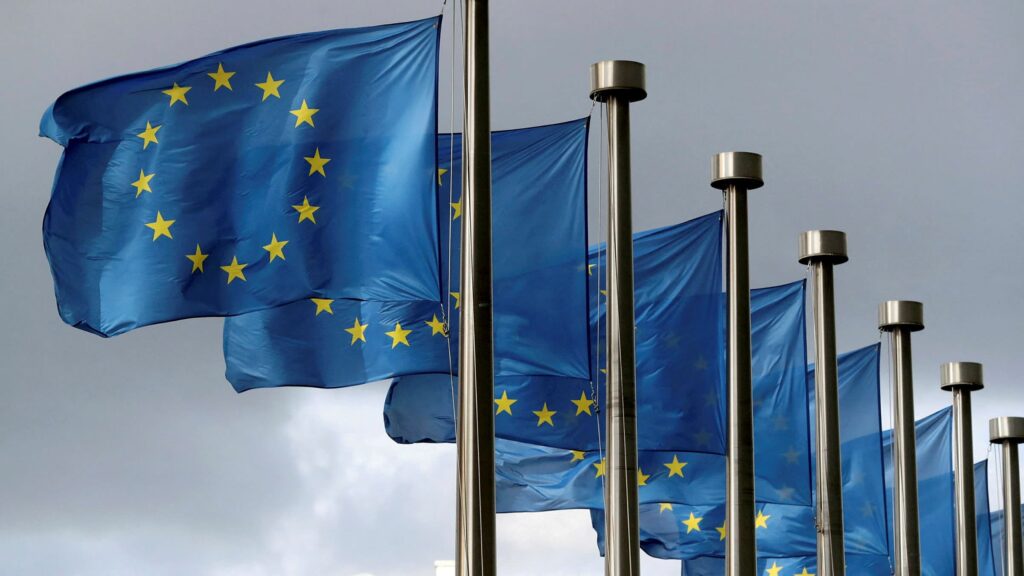Brussels seeks €12bn annual revenues from EU carbon trading scheme


Brussels wants to take a €12bn annual slice of the EU’s emissions trading scheme (ETS) and use it to repay recovery fund debts and support vulnerable households, as the European Commission makes a pitch for fresh revenue streams from member states.
Proposals from the commission would also give it the lion’s share of the new carbon border adjustment mechanism that will tax high-polluting imports, gaining another €1bn a year in revenues. And Brussels would take a chunk of reallocated taxing rights on multinationals, proposed under the recent OECD deal, yielding it up to €4bn of extra revenue.
The package of new EU “own resources”, worth up to €17bn a year from 2026 onwards, would revolutionise the way the commission raises money, but is likely to encounter difficult negotiations with member states that will chafe at granting Brussels new revenue lines. Brussels argues the extra cash is necessary to repay the unprecedented borrowings that will be amassed under its €800bn pandemic recovery programme.
Member states agreed last year with the commission and parliament to work towards introducing new own resources, but the sources of the funds will be controversial. The ETS is under attack from some countries that argue the surging carbon trading price — which has hit records above €90 a tonne of CO2 this month — is driving up household energy bills.
The commission argued that the record price has generated an additional €11bn of profits for EU governments in 2021 from a year earlier. ETS revenues currently stay with the member states.
The ETS is a central pillar of the EU’s greenhouse gas emissions reduction strategy, which aims to hit net zero emissions by 2050. Brussels wants to extend the scheme by creating a smaller carbon trading market for buildings and cars — a measure that has met fierce opposition from the likes of France and Spain and poorer countries that face rising costs from the energy transition such as Poland, Hungary and the Czech Republic.
The own resources proposal would siphon off a quarter of the total revenue generated by the ETS and divert it to the EU budget to help pay off recovery fund debts that are due to be repaid by 2058. Brussels also wants to use money generated by the ETS to create a Social Climate Fund to compensate the poorest households who will bear the brunt of rising energy prices.
Brussels estimates the fund’s size at about €24bn split over 2025-27, but the measure has come under fire from fiscally hawkish northern countries wanting to scrap the planned fund, and governments in the south arguing that the compensation should be much larger.
Johannes Hahn, the EU budget commissioner, said he was confident member states would rally behind the own resources proposals. However, he said the hefty price tag on the Social Climate Fund meant that a second set of proposals would be needed in 2023 for further new own resources, to make up the full amount needed to repay the NextGenerationEU debts.
The ideas on the table would, he said, include a financial transactions tax — something the EU has struggled to win political backing for since the idea was first mooted in 2011.
Today’s package from the commission also sets out plans for Brussels to take 15 per cent of the money raised in the EU under the OECD deal on global taxation, struck between 137 countries in October. The deal requires the largest multinationals to pay more tax where they actually do business, and the commission estimates it will generate revenues for the EU budget of between €2.5bn and €4bn a year.
Brussels is also publishing a separate directive on Wednesday that will implement the other pillar of the recent global OECD deal that introduces a global minimum corporate tax.
This will set the new 15 per cent minimum effective tax rate for companies across the EU. The directive closely follows model rules released on Monday by the OECD as to how countries should implement the minimum tax. But, in a departure from the OECD, the EU plans to extend the tax to purely domestic companies with more than €750m in annual revenues, not just multinationals. This has been done to ensure the new tax does not distinguish between foreign and domestic companies in a way that would violate the bloc’s fundamental freedoms.
The development makes the EU the first region to start implementing the global tax deal but, in order for the deal to come into effect by 2023 as planned, all 137 countries that have signed up to it must legislate and ratify the agreement by that date.
The plan to implement the minimum tax comes alongside a crackdown on the use of shell companies to dodge tax within the EU. This is part of a broader package of measures aimed at ensuring businesses shoulder a fairer share of the costs of public services. A commission directive will aim to make it harder for businesses to set up entities that conduct little actual economic activity but are used to reduce tax bills.
The flurry of proposals is part of a global effort to reduce companies’ opportunities to exploit mismatches and gaps in tax rules around the world, shifting profits to lower-tax jurisdictions and depriving finance ministries of revenue.